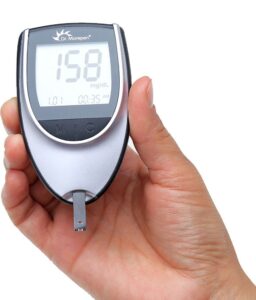Healthy kidney tips
Your kidneys are fist-sized organs located below your rib cage on both sides. They perform a variety of functions, the most important of which is removing waste products from your body. Kidneys filter impurities, toxic substances and remove excess water from the body. They are also responsible for producing hormones that regulate blood pressure and increase the body’s production of red blood cells. Kidneys also perform the function of activating vitamin D that helps your body to absorb calcium.
Since your kidneys perform a wide range of functions, it is necessary to keep your kidneys healthy so that they can filter waste products properly and produce hormones that regulate important functions. Here are a few tips for maintaining kidney health:
1. Drink plenty of water and other fluids
A recommendation is to drink at least 1.5 to 2 liters of water every day to keep your kidneys healthy. Factors such as gender, climate, overall health, and lifestyle determine your water intake. Water intake helps clear toxic substances and sodium from your body. Moreover, people who have had a history of kidney stones should drink a bit more water to prevent the formation of the stones.
2. Monitor blood pressure
High blood pressure can cause kidney damage. Additionally, if you suffer from heart disease or diabetes, the damage can be significant. The normal blood pressure reading is 120/80. Prehypertension is indicated by blood pressure139/89. If your blood pressure remains at or above 140/90, then you have hypertension. You should consult your health care provider and monitor your blood pressure regularly.
3. Eat healthily
Consider eating those foods that are low in sodium, such as whole grains, fish, cauliflower, blueberries, etc. Avoid processed meats and kidney-damaging foods to maintain good kidney health.
4. Monitor blood sugar levels
If you suffer from diabetes, you need to strictly monitor your blood sugar levels to save your kidneys from any damage. If blood sugar levels are high, excess sugar is not used in the body and your kidneys are forced to work extra hard to get rid of the excess sugar. This can result in kidney damage. Consult your doctor if you have diabetes and monitor your blood sugar levels to prevent any life-threatening kidney disorder.
5. Keep active
Regular exercise can help prevent kidney disease. Keeping active can also help regulate blood pressure which is ultimately beneficial for kidney health. You don’t have to go for strenuous exercises; instead, light exercises such as walking, cycling, jogging, or even dancing can prove beneficial.
6. Quit smoking
If you smoke, just quit. Smoking can significantly damage your body’s blood vessels and lead to decreased blood flow to your body and kidneys, resulting in kidney damage. Moreover, this can also lead to an increased risk of developing cancer. So, it is advisable to stop smoking and lead a healthy life.
7. Consult your doctor before taking any medication
Consult your doctor before you take any medications, and be aware of the OTC pills you take. Some drugs such as NSAIDs (ibuprofen and diclofenac) can be a great risk for your kidney health if you take them regularly.
FAQs
Q1. Which foods can be damaging for kidneys?
Foods such as whole wheat bread, avocados, brown rice, canned foods, instant or premade meals, dark-colored soda, and processed meats can be kidney-damaging. Avoiding these foods can decrease the accumulation of waste products in the body.
Q2. Which foods can help repair damaged kidneys?
Garlic, apples, blueberries, cauliflower, onions, cabbage, cranberries, strawberries, bell peppers, cherries, fish, and olive oil can help repair your kidneys. These foods are especially important for people suffering from kidney disease.



